Review: PARADISE SQUARE Pre-Broadway Production
Presented by Broadway In Chicago, the pre-Broadway run of PARADISE SQUARE plays through December 5, 2021.
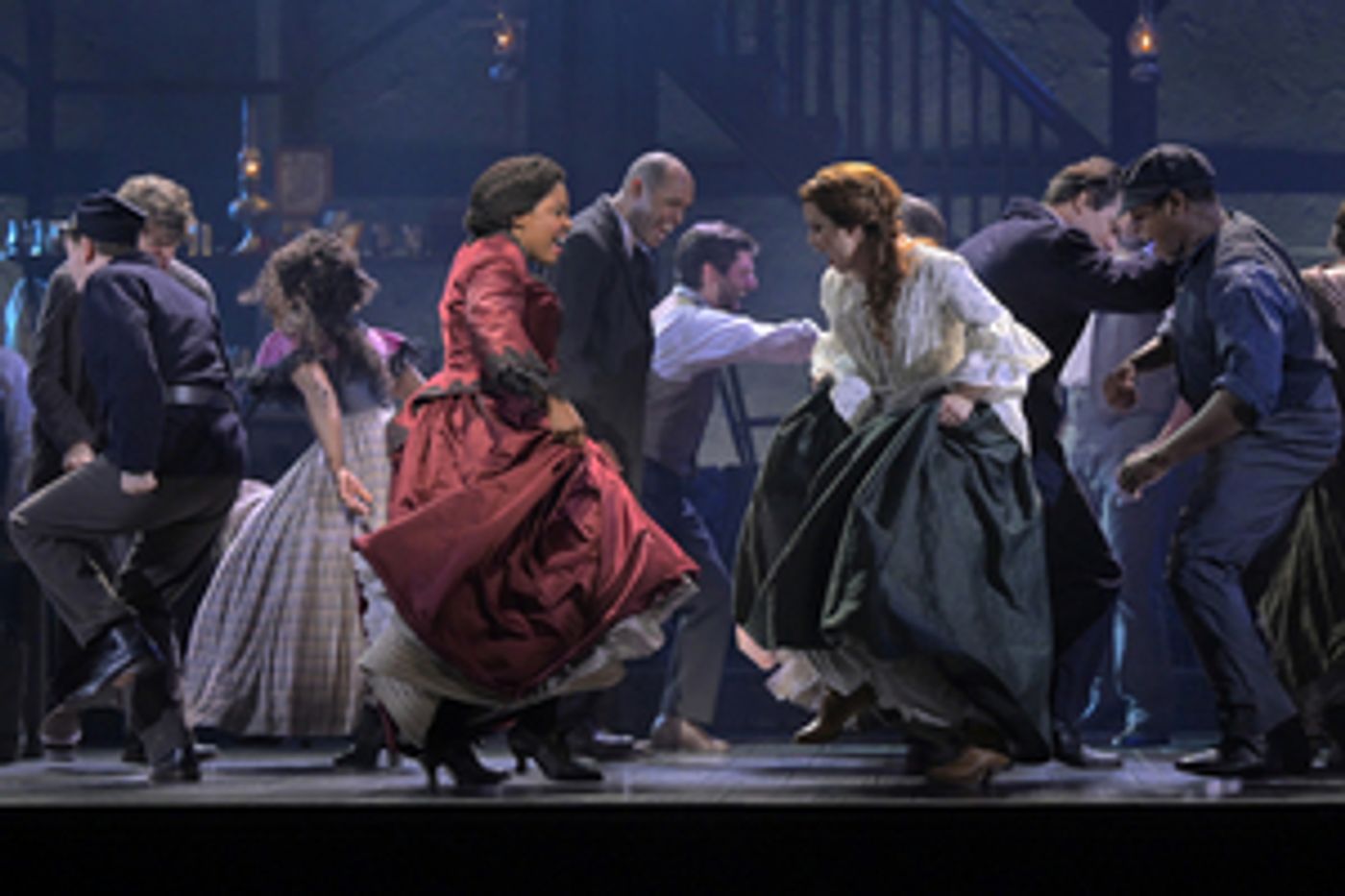
PARADISE SQUARE takes the theme of the proverbial American melting pot deeply to heart. The musical centers on the lower Manhattan neighborhood of Five Points in the 1860s, where many white Irish immigrants and free Black Americans lived together. Though the show's narrator, Paradise Square saloon owner Nelly O'Brien, tells audiences that Five Points was notorious for being a slum, she also makes clear that the neighborhood's inhabitants enjoyed deep friendships and romantic relationships.
Of course, the Draft Riots of 1863 linger in the background from the show's start (though the writers don't make that context as clear as they might), indicating that this precarious harmony could be upended at any moment. While I'm usually not a fan of exposition or overtly didactic material in musicals, PARADISE SQUARE could do better to foreshadow this tension in the eponymous opening number. Nelly introduces us to the show's setting, but the lyrics could have fared better to provide that critical historical context.
Directed by Moisés Kaufman, PARADISE SQUARE sets a high bar for itself: This is an original storyline with original
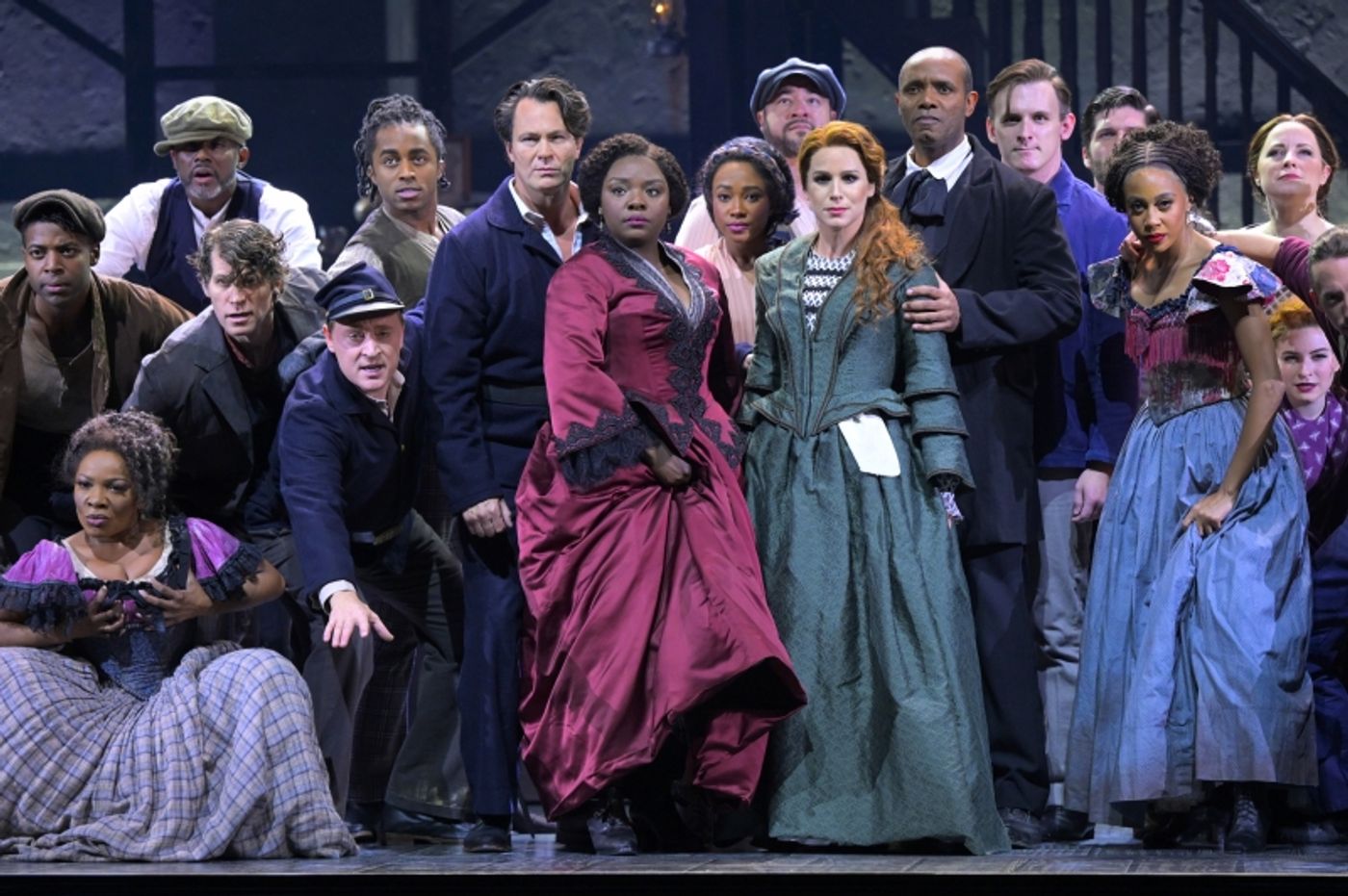
characters based on historical events. Because it's so rare to see new musicals now that have truly original concepts, I was intrigued and excited. But PARADISE SQUARE tries to tackle so much in terms of themes, plot, characters, and even musical styles that it doesn't all cohere.
This may be in large part because so many different writers are involved. PARADISE SQUARE is based on Larry Kirwan's 2012 musical HARD TIMES, which in turn drew inspiration from folk American songwriter Stephen Foster. Kirwan is now credited as PARADISE SQUARE's conceiver. Christina Anderson, Marcus Gardley, Craig Lucas, and Kirwan are credited as the book writers, music by Jason Howland, and lyrics by Nathan Tysen and Masi Asare.
PARADISE SQUARE's first act takes a real "everything but the kitchen sink" approach to the story and characters. A plethora of characters and plot points are introduced, almost every song has a different musical style, and the songs and the book scenes often feel disconnected. Rather than flowing between song and scene, the first act seems to set up both elements on parallel tracks. The music combines songs from Stephen Foster himself and some songs inspired by the character's cultural backgrounds with clear Irish and African American influences. Many of the songs, however, also feel like they came out of an early 2000s contemporary pop Broadway musical. That kind of sound is discordant with the show's other musical influences that are rooted in its historical setting.
While PARADISE SQUARE has perhaps too many characters, it is worth noting that the writers
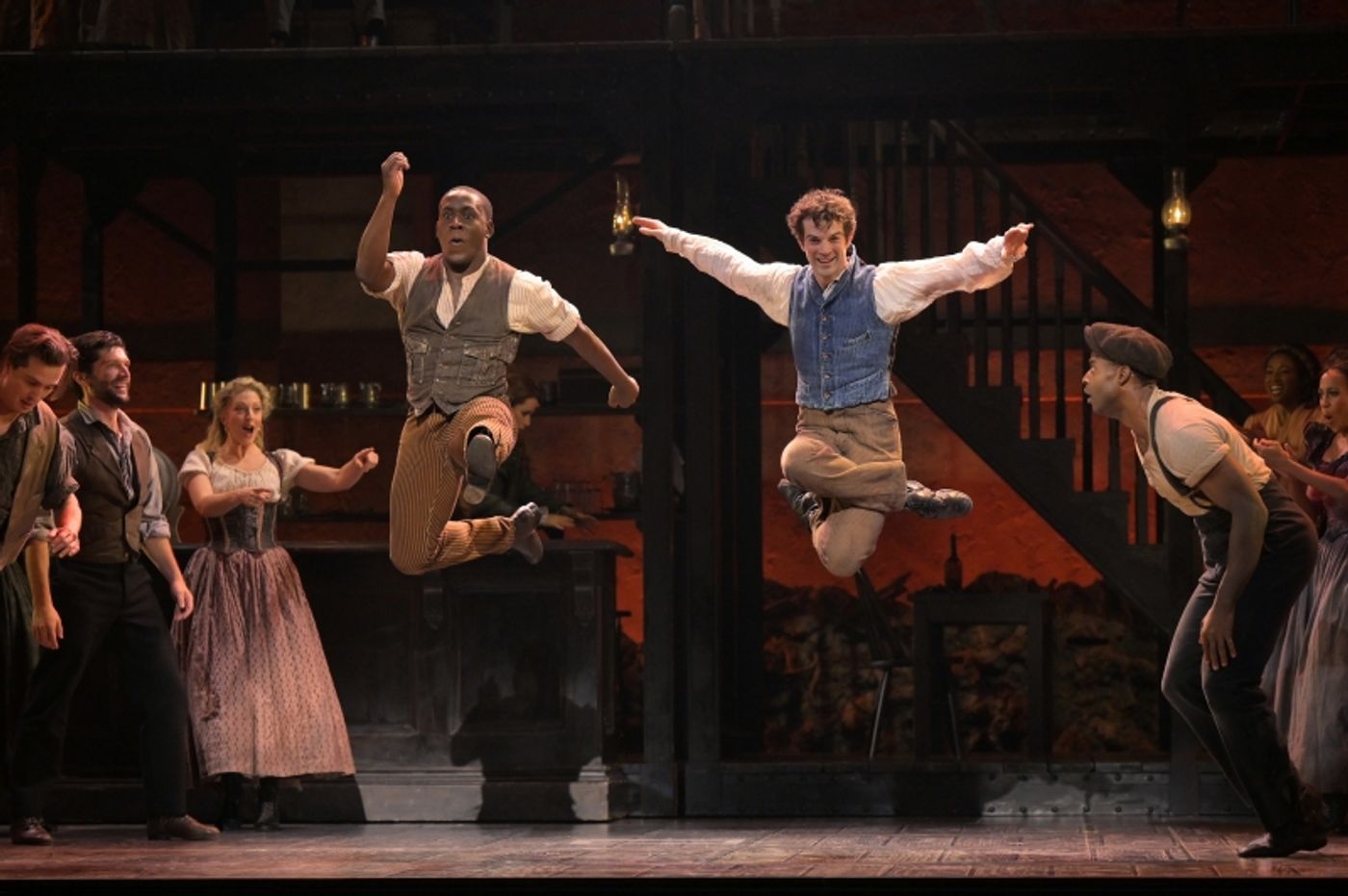
and A.J. Shively (Owen Duignan)
did a strong job representing Five Points's diverse community in their storyline. Nelly O'Brien (Joaquina Kalukango) is a central figure in the show, as is her sister-in-law Annie Lewis (Chilina Kennedy) and Annie's husband, Reverend Samuel Jacob Lewis (Nathaniel Stampley). At the show's start, we also meet Nelly's husband Willie O'Brien (Matt Bogart) and his fellow Irish immigrant "Lucky" Mike Quinlan (Kevin Dennis) - and the latter comes to represent much of the bitterness that white American men felt against their free Black American counterparts. There's also Washington Henry (Sidney Dupont), a free Black man who has just escaped slavery in the South and longs to reunite with his partner Angelina Baker (Gabrielle McClinton). We also meet Annie's nephew Owen (A.J. Shively), a bright-eyed Irish immigrant hoping to achieve the elusive American dream. The show also introduces Frederic Tiggens (John Dossett), who's an unsubtle, and I'd argue unnecessary, representation of the entitled rich and racist white man; I understand why Frederic was added to PARADISE SQUARE, but I don't think he adds any nuance. Finally, of note is Milton Moore (Jacob Fishel), a songwriter who begs Nelly to bring him on as pianist at the Paradise Square saloon. If this list of characters is starting to seem as long as the character list in LES MISERABLES, it's because it is. I understand that the writers were eager to create a community of characters as a microcosm of Five Points's history, but each of these characters also has their own storylines, and it's a lot to take in.
Interestingly, the second act is much tighter than the first act. In the second act, all the storylines introduced in the first half come together, the songs are grouped more closely together so it all flows better, and the pacing feels swift and engaging. Though both acts are roughly the same length, the second act of PARADISE SQUARE is where we really arrive at the heart of the story. I only wish the first act was as tight and as compelling as the second.
All together, PARADISE SQUARE has an ensemble of over 30 actors, and certainly this
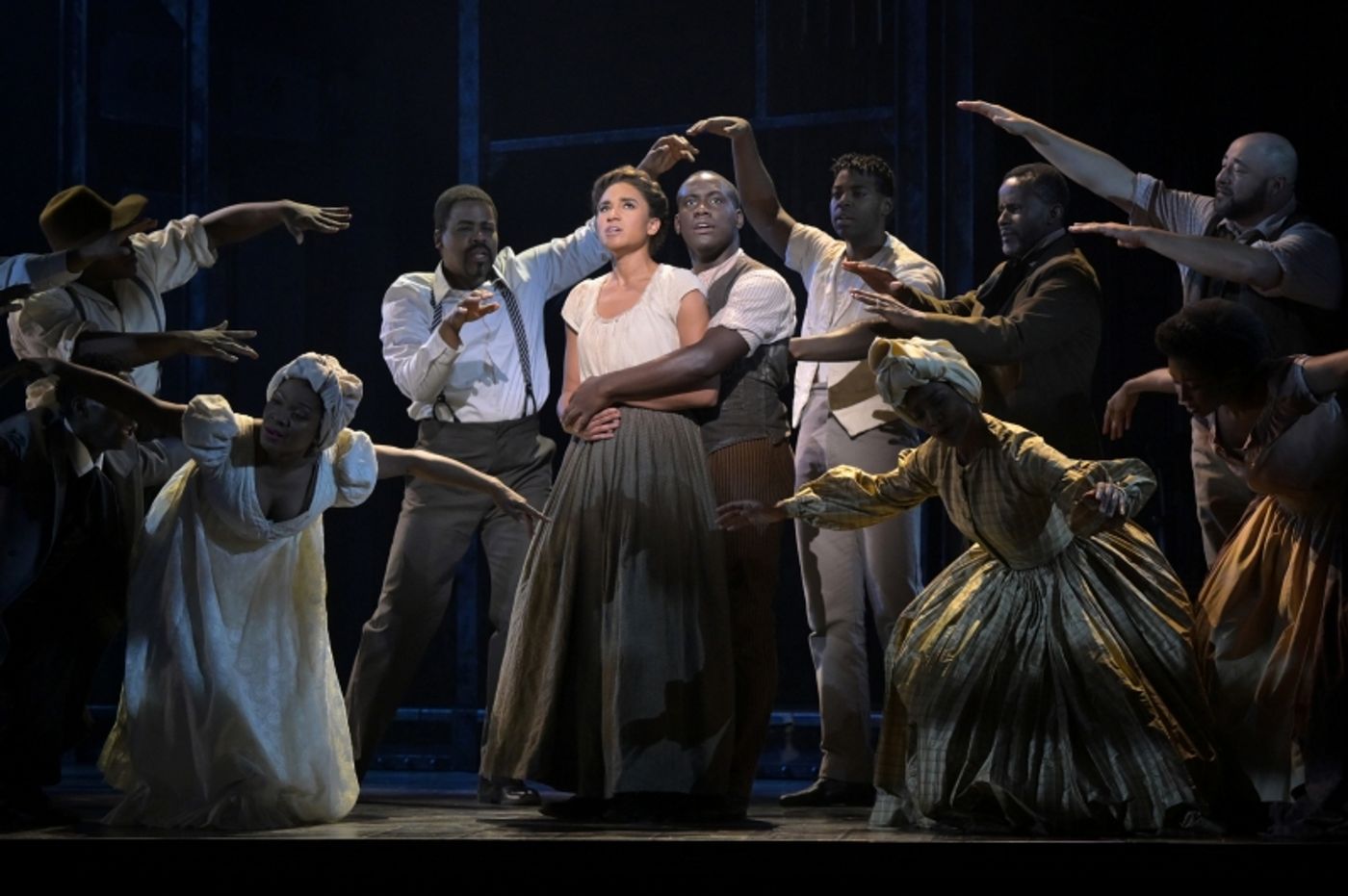
Sidney Dupont (Washington Henry), and Ensemble
production is stacked with talent. The ensemble shines most when performing Bill T. Jones's choreography. In a word, Jones's choreography is outstanding. This is the kind of dance that wins Tony Awards. It's beautiful, and Jones truly uses movement in PARADISE SQUARE to enhance narrative, deepen character development, and create enthralling tableaus through dance. In Jones's choreography, too, PARADISE SQUARE's blend of different cultural influences finds its seamless match. The choreography is fantastic, and the ensemble dance numbers are breathtaking.
Likewise, PARADISE SQUARE has some tremendous singers and actors. Kalukango is brilliant
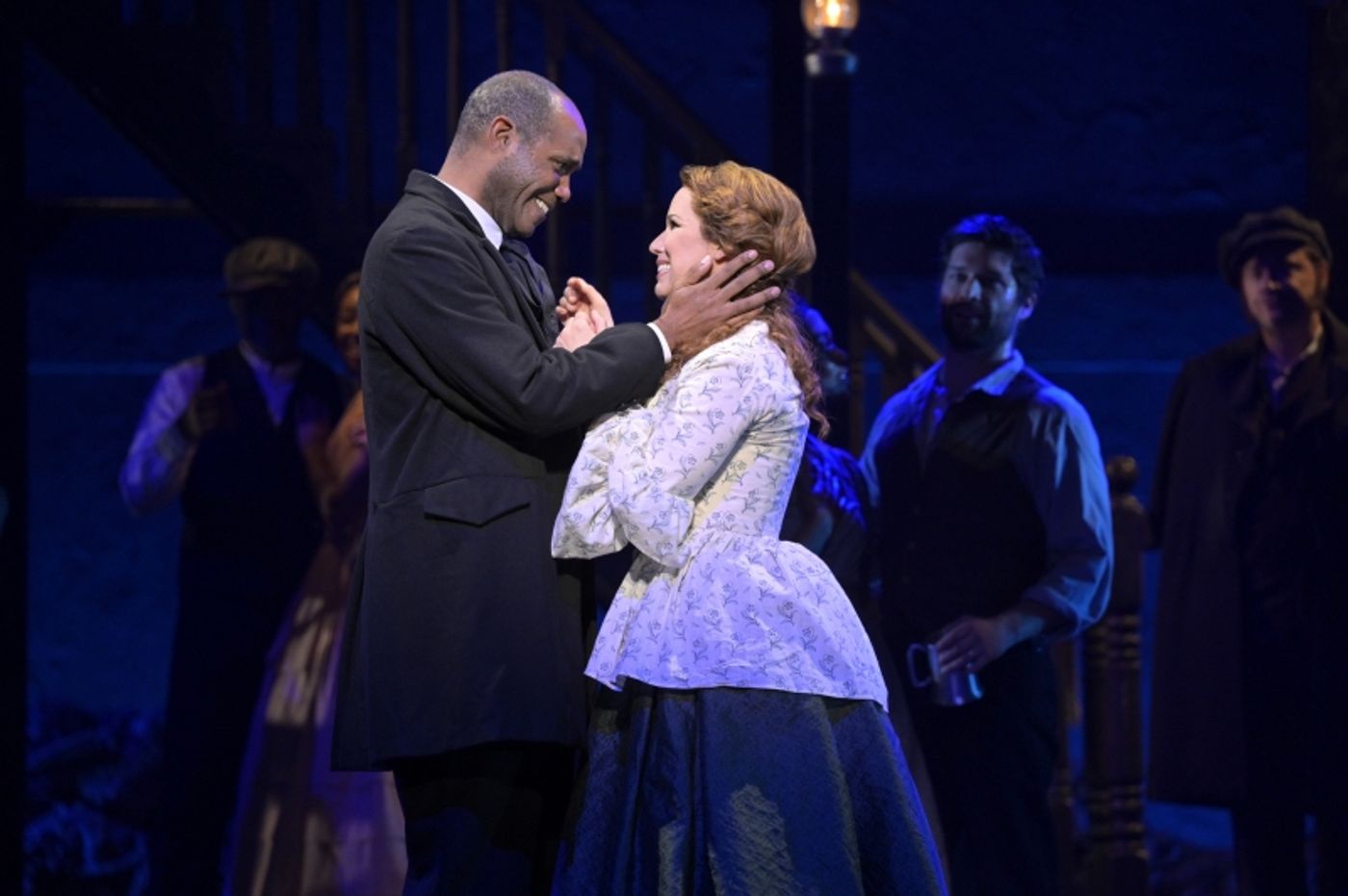
and Chilina Kennedy (Annie Lewis)
as the show's anchor and likewise as Paradise Square's anchor. She has an immensely powerful belt, and her delivery of the marathon 11 o'clock number "Let It Burn" is stunning. She performs real vocal Olympics during that song, but she makes it seem so easy. Kalukango also easily switches between Nelly's general "take no prisoners" attitude and moments of intense vulnerability. Kennedy likewise gives an inspired performance. Her Irish accent is divine, and she milks all of Annie's dialogue for the utmost amount of humor. She's also a gifted singer and her crystalline soprano shines in her duet "Gentle Annie," alongside Stampley. Kennedy and Stampley's voices complement one another beautifully. And "Gentle Annie" is a great example of a song in which the character development works well. The name is ironic, for Annie is not at all gentle, but the song finds a line between humor and then showcasing the genuine love between Annie and the Reverend. DuPont's performance as Washington Henry is also notable. He's a delightful singer, but he's an even more stunning dancer. He pulls off some incredible feats of movement. Shively is likewise an excellent tap dancer. And when DuPont and Shively have moments where they dance alongside one another, the effect is breathtaking.
PARADISE SQUARE takes on a timely and original concept with stunning choreography and immensely talented and engaging performers. The second act brings it all together, but the show's first act needs refinement so the execution can meet the fascinating concept.
Presented by Broadway In Chicago, the pre-Broadway run of PARADISE SQUARE plays through December 5, 2021 at the James M. Nederlander Theatre, 24 West Randolph. Visit BroadwayInChicago.com for tickets.
Photo Credit: Kevin Berne
Review by Rachel Weinberg
Reader Reviews
Videos

